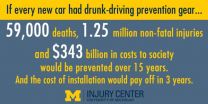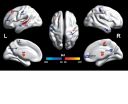INFORMATION:
'Antimicrobial stewardship: the scientists' role?' is published in the Journal of Antimicrobial Chemotherapy on March 20.
Scientists must reduce antibiotic use in experiments
2015-03-20
(Press-News.org) Scientists should reduce antibiotic use in lab experiments - according to a researcher at the University of East Anglia.
Microbiology, molecular biology and genetic research such as the Human Genome Project use antibiotics in experiments.
But it all adds to the global problem of antibiotic resistance according to Dr Laura Bowater, from UEA's Norwich Medical School.
A new article published today in the Journal of Antimicrobial Chemotherapy highlights the problem.
Dr Bowater said: "The discovery of antibiotics was heralded as a magic bullet for modern medicine. Using antibiotics in research has transformed scientific discovery. But now antibiotic resistance is a catastrophic threat -and it threatens the achievements of modern medicine.
"Rising rates of antibiotic resistance are a growing danger in hospitals and health facilities throughout the world. Industries such as medicine and agriculture have been asked to cut the use of antibiotics wherever possible. But this message needs to be extended to scientists too because there is a widespread use of antibiotics in the research community.
"Scientists use antibiotics and antibiotic resistance as fundamental tools for research. They are particularly used to help culture bacteria in the lab, and are used throughout genetic sequencing research.
"They are cheap, freely available and easy to use. But researchers risk releasing antibiotics and new antibiotic resistant bacteria into the environment.
"The antibiotics used in the laboratory, such as ampicillin, chloramphenicol and tetracycline often overlap with antibiotics used in the clinic. And antibiotic resistance genes can effectively provide a pool of bacterial resistance towards a range of different antibiotics.
"Reliance on antibiotic based technologies is not acceptable, necessary or responsible. In this day and age we need to consider other synthetic options and technologies that avoid the use of clinically important antibiotics.
"At the very least researchers must be encouraged to use antibiotics more responsibly and sparingly in both educational and research settings," she added.
ELSE PRESS RELEASES FROM THIS DATE:
The Oldest Old are changing Canada
2015-03-20
This news release is available in French. In 1971 there were 139,000 Canadians aged 85 and over. By 2013 their numbers had risen to 702,000. The Oldest Old as they have become known today represent 2% of the total Canadian population. "They are a demographic reality which has to be taken into account in formulating public policy", according to Jacques Légaré, a demographer at the University of Montreal, who is presenting a report on this phenomenon this week to more than a hundred experts meeting at the Population Change and Lifecourse Strategic Knowledge ...
Suspension leads to more pot use among teens, study finds
2015-03-20
Suspending kids from school for using marijuana is likely to lead to more -- not less -- pot use among their classmates, a new study finds.
Counseling was found to be a much more effective means of combating marijuana use. And while enforcement of anti-drug policies is a key factor in whether teens use marijuana, the way schools respond to policy violators matters greatly.
The study, conducted by researchers at the University of Washington and in Australia, compared drug policies at schools in Washington state and Victoria, Australia, to determine how they impacted ...
Bright new hope for beating deadly hereditary stomach and breast cancers
2015-03-20
Deadly familial stomach and lobular breast cancers could be successfully treated at their earliest stages, or even prevented, by existing drugs that have been newly identified by cancer genetics researchers at New Zealand's University of Otago.
The researchers, led by Professor Parry Guilford, show for the first time that the key genetic mutation underlying the devastating conditions also opens them to attack through drug therapies targeting other cellular mechanisms.
There is currently no treatment for this kind of gastric cancer other than surgical removal of the ...
Thinking of drinking and driving? What if your car won't let you?
2015-03-20
ANN ARBOR, Mich. -- If every new car made in the United States had a built-in blood alcohol level tester that prevented impaired drivers from driving the vehicle, how many lives could be saved, injuries prevented, and injury-related dollars left unspent?
Researchers at the University of Michigan Injury Center and the University of Michigan Transportation Research Institute studied the impact of installing these alcohol ignition interlock devices in all newly purchased vehicles over a 15-year period; their estimates of injury prevention and cost savings are significant.
They ...
Healthy grain fiber helps barley resist pests
2015-03-20
Research at the University of Adelaide's Waite campus has shed light on the action of the serious agricultural pest, cereal cyst nematode, which will help progress improved resistant varieties.
Published in the journal New Phytologist, the researchers showed how the composition of the cell wall that surrounds the feeding sites of these tiny parasitic worms in the plant roots differs between resistant and susceptible varieties of barley.
"A type of fibre that we usually associate with wholegrain and healthy foods ? beta-glucan ? accumulates in the cell walls surrounding ...
Review of global guidelines for sepsis needed
2015-03-20
Experts are calling for a global review of guidelines used to diagnose sepsis, after a study found one in eight patients with infections severe enough to need admission to an Intensive Care Unit in Australia and New Zealand, did not meet current criteria.
Researchers from Monash University and the Australian and New Zealand Intensive Care Society (ANZICS) reviewed data collected on over a million patients admitted to 172 Intensive Care Units (ICU). Covering a 14-year period, 109,663 patients with infection and organ failure were identified with possible sepsis. However, ...
Superfast computers a step closer as a silicon chip's quantum capabilities are improved
2015-03-20
The team demonstrated a quantum on/off switching time of about a millionth of a millionth of a second - the fastest-ever quantum switch to be achieved with silicon and over a thousand times faster than previous attempts.
"Quantum computing exploits the fact that, according to quantum mechanics atoms can exist in two states at once, being both excited and unexcited at the same time. This is known as a superposition state, and is most famously illustrated by Schrödinger's quantum cat which is simultaneously dead and alive" said Dr. Ellis Bowyer, one of the Surrey ...
Autistic and non-autistic brain differences isolated for first time
2015-03-20
New big data methodology can analyse over 1 billion pieces of data
The methodology can potentially isolate the areas of the brain involved with other cognitive problems, including Obsessive Compulsive Disorder, ADHD and schizophrenia.
The functional differences between autistic and non-autistic brains have been isolated for the first time, following the development of a new methodology for analysing MRI scans.
Developed by researchers at the University of Warwick, the methodology, called Brain-Wide Association Analysis (BWAS), is the first capable of creating panoramic ...
Stinging nettle chemical improves cancer drug
2015-03-20
A cancer drug could be made 50 times more effective by a chemical found in stinging nettles and ants, new research finds.
Researchers at the University of Warwick found that when the chemical, Sodium Formate, is used in combination with a metal-based cancer treatment it can greatly increase its ability to shut down cancer cells.
Developed by Warwick's Department of Chemistry, the drug, a compound of the metal ruthenium called JS07, is capable of exploiting a cancer cell's natural weaknesses and disrupts its energy generation mechanism.
Laboratory tests on ovarian ...
'Attract and kill:' Trapping malaria mosquito mums before they lay eggs
2015-03-20
In a world first, researchers have found that a naturally occurring chemical attracts pregnant malaria-transmitting mosquitoes - a discovery which could boost malaria control efforts.
The chemical, cedrol, found in mosquito breeding sites near Africa's Lake Victoria, could be used in traps that would 'attract and kill' the female mosquito, preventing reproduction before she lays hundreds of eggs.
A child dies every minute from malaria, according to World Health Organization estimates. In Africa, malaria parasites carried by the female Anopheles gambiae mosquito are ...

